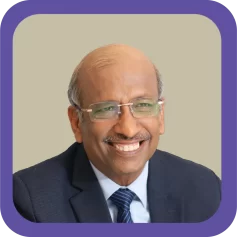APAC DNS Forum 2022
Overview
Jointly organized by ICANN and MYNIC Berhad, which is the Registry & Registrar for .MY, the inaugural APAC DNS Forum 2022 took place from 30 March to 1 April 2022 in Kuala Lumpur, Malaysia.
Themed “Beyond Technology: The Revolution of DNS,” the APAC DNS Forum 2022 featured discussions ranging from technical topics to industry trends and business opportunities, as well as broader topics like the potential impacts of regulatory, policy, and technological developments on the DNS industry.
Highlights
Full-Session Recordings
Programme Schedule
Time (UTC)
Time (UTC+8)
00:00-01:00
08:00-09:00
Registrations
01:00-01:30
09:00-09:30
Guest Arrival
01:30-02:00
09:30-10:00
Welcome Remarks
02:00-02:30
10:00-10:30
Keynote Address
02:30
10:30
Official Launch
Time (UTC)
Time (UTC+8)
01:00-02:30
09:00-10:30
Future of the DNS
Future of the Domain Name System (DNS)
30 March, 2022
At this Forum’s lead-up webinar, it has been established that the DNS is fundamental to the Internet. The DNS has continued to evolve over the past 40 years, supporting various innovations on the Internet with no one in charge. Where is it headed and what challenges will it face in the future?
Moderator(s)

Jia-Rong Low
ICANN
Speakers(s)

Göran Marby
ICANN

Geoff Huston
APNIC

May-Ann Lim
Fair Tech Institute / Asia Cloud Computing Association

Ram Mohan
Donuts
Highlights
02:45-04:15
10:00-10:15
What’s Next for IDN Variants?
What’s Next for Internationalized Domain Name (IDN) Variants?
30 March, 2022
This session will provide an overview on the use of Internationalized Domain Name (IDN) variants (e.g. simplified and traditional Chinese). The session will provide an update on ongoing IDN variant discussions for both generic top-level domain (gTLD) and country-code top-level domain (ccTLD), as well as next steps. Speakers from different stakeholder groups will share the challenges for IDN variants from policy, manageability, and usability perspectives.
Moderator(s)

Satish Babu
APRALO
Speakers(s)

Pitinan Kooarmornpatana
ICANN

Donna Austin
IDN EPDP

Kenny Huang
ccPDP4

Jiankang Yao
CNNIC

Marc Blanchet
Cofomo
Highlights
04:30-05:30
12:30-13:30
Protecting Your Domain Name: Recapturing Lost Revenue and Traffic from Cybersquatters and Counterfeiters- Reg.Asia
Protecting Your Domain Name: Recapturing Lost Revenue and Traffic from Cybersquatters and Counterfeiters
30 March, 2022
The Internet has changed the scope of threats to BRANDS and REVENUE.“93% of brands experience online fraud and 7% Annual Revenue lost to counterfeiters.”
DO YOU HAVE THE RIGHT FOCUS AND PROTECTION FOR YOUR BRAND DOMAIN? In this session, the speaker will share how domain protection can recapture lost revenue and traffic to counterfeiters & cybersquatters and what are the key players doing to protect their brand’s domains.As our reliance on digital services continues to grow, this will become an even more essential ingredient for success.
Moderator(s)

David Chui
MYNIC
Speakers(s)

Susan Lien
Reg.Asia
Highlights
05:30-07:00
13:30-15:00
Lunch Break
07:00-08:00
15:00-16:00
Lightning Talk: DNS Health’s Role in Security Posture
Lightning Talk – DNS Health’s Role in Security Posture
30 March, 2022
Over the years, DNS has been a target by cybercriminals not only for distributed denial of service (DDoS) attacks, but also phishing. Phishing, if successful, can be used as a launch pad for more complex methods like ransomware and business email compromise (BEC). Organizations should include DNS in their overall security strategy. It’s key to assess all aspects surrounding DNS: providers, assets linked to DNS, and security layers.
Moderator(s)

David Chui
MYNIC
Speakers(s)

John Valenzuela
CSC
Highlights
08:15-09:15
16:15-17:15
Establishing a Trusted Notifier Mechanism to Fight DNS Abuse
Establishing a Trusted Notifier Mechanism to Fight DNS Abuse
30 March, 2022
Voluntary Trusted Notifier arrangements are a relied upon way for registries and registrars to help address DNS abuse. ccTLD and gTLD registries TWNIC and DotAsia recently joined forces to co-develop a Trusted Notifier Anti-Phishing Fast Track Mechanism as part of their commitment to combat growing cybersecurity concerns. Besides sharing their approach in this collaboration, this session also aims to explore how the wider APAC community could collaborate with one another to further this effort.
Moderator(s)

Pavel Farhan
Asian Institute of Technology/ UN OICT
Speakers(s)

Kenny Huang
TWNIC

Edmon Chung
DotAsia Organisation

Brian Cimbolic
PIR
Highlights
Time (UTC)
Time (UTC+8)
01:00-01:45
09:00-09:45
DNS Directions & Network Operators
DNS Directions & Network Operators
31 March, 2022
Voluntary Trusted Notifier arrangements are a relied upon way for registries and registrars to help address DNS abuse. ccTLD and gTLD registries TWNIC and DotAsia recently joined forces to co-develop a Trusted Notifier Anti-Phishing Fast Track Mechanism as part of their commitment to combat growing cybersecurity concerns. Besides sharing their approach in this collaboration, this session also aims to explore how the wider APAC community could collaborate with one another to further this effort.
Moderator(s)

David Chui
MYNIC
Speakers(s)

Bruce Van Nice
Akamai
Highlights
02:00-03:00
10:00-11:00
Globalizing Efforts to Mitigate DNS Abuse
Globalizing Efforts to Mitigate DNS Abuse
31 March, 2022
The purpose of this panel is to discuss the state of DNS abuse in the APAC region, with a particular emphasis on how the local experience might differ from other regions. We’ll look at the gaps in education and tools for the APAC community, while also discussing potential avenues to collaborate and innovate together.
Moderator(s)

Graeme Bunton
DNS Abuse Institute
Speakers(s)

Sophia Feng
ZDNS

Edmon Chung
DotAsia Organisation

Anil Jain
NIXI

Yoshi Murakami
Com Laude
Highlights
03:15-04:15
11:15-12:15
Being a Registrant- Things to Note
Being a Registrant – Things to Note
31 March, 2022
This session will provide an overview on domain name lifecycles and how it relates to registrants (domain name owners). Speakers will share useful information on registrants’ rights and responsibilities, as well as steps to protect your domain name. The session will also discuss how registrars and resellers may interact with their customers and/or Internet end users.
Moderator(s)

Yien-Chyn Tan
ICANN
Speakers(s)

Brian Gutterman
ICANN

Ashwin Rangan
ICANN

Abhijit Relekar
Newfold Digital
Highlights
04:15-06:00
12:15-14:00
Lunch Break
06:00-07:00
14:00-15:00
Lightning Talk: DNS in Multi-tenant Cloud Environment
Lightning Talk – DNS in Multi-tenant Cloud Environment
31 March, 2022
In a cloud environment, different tenants may have different DNS configurations. The configurations may include tenant-specific Virtual Private Zones(VPZ), DNS Response Policy Zones(RPZ), Response Rate Limiting(RRL) or Access Control List(ACL) etc.
This talk will describe a best practice on how Alibaba provision the DNS infrastructure for Tenant in Cloud Environment. The “VNI” EDNS option (or EDNS VNI) is proposed to enable the DNS to signal and identify the tenant virtual network from which a DNS query is generated. Based on EDNS VNI information, the DNS server can respond according to the configuration of that tenant.
Moderator(s)

Sabrina Lim
ICANN
Speakers(s)

Davey Song
Alibaba Cloud
Highlights
07:17-08:00
15:15-16:00
Thick or Thin Registry & Data Escrow for ccTLD and gTLD
Thick or Thin Registry & Data Escrow for ccTLD and gTLD
31 March, 2022
What’s the difference? Simply put, in a thin registry, the contact details for a domain registration (namely the registrant, admin, technical and billing contacts) are stored at the registrar, and the registry’s whoisserver only shows basic domain information, and provides a referral to the “registrar whois” which then shows the relevant contact data. Conversely, in a thick registry system, the contact details are stored at the registry level, and are shown in the “registry whois”. There is no “registrar whois”.
Moderator(s)

Dr Stefanie Chow
MYNIC
Speakers(s)

Gavin Brown
CentralNic
Highlights
08:15-09:00
16:15-17:00
Digital Brand & Future Digital Commerce
Digital Brand & Future Digital Commerce
31 March, 2022
Digital commerce isn’t the commerce of the future — it is the commerce of today. Permanent shifts in consumer behaviour and a massive boom in the Malaysian eCommerce sector meant that businesses must adopt digital or risk fading to obscurity.
This session discusses the importance of embracing digital commerce, as well as the key elements needed to tackle an ever-shifting digital landscape, from eCommerce skills to the core technologies that can help build a strong digital brand.
Moderator(s)

Mahadhir Aziz
MDEC
Highlights
Time (UTC)
Time (UTC+8)
02:15-03:15
10:15-11:15
Real Life Perspectives on Regional DNS Abuse in APAC
Real Life Perspectives on Regional DNS Abuse in APAC
1 April, 2022
Join JPCERT Coordination Center, the Korean National Police Agency and The Spamhaus Project as they share their real-life perspectives regarding malicious activity in Asia Pacific (APAC), including some of their current concerns and threats they have recently detected targeting users in the region that, in one way or another, make use of, or abuse the DNS. The purposes of the session are to share with the audience three informed perspectives regarding the DNS threat scenario, discuss methods and techniques to address them and increase general awareness about them.
Moderator(s)

Carlos Alvarez
ICANN
Speaker(s)

Shoko Nakai
JPCERT

Carel Bitter
The Spamhaus Project
Highlights
03:30-04:30
11:30-12:30
How 5G will Penetrate the Industry and Accelerate the Evolution of DNS – pre-recorded session
How 5G will Penetrate the Industry and Accelerate the Evolution of DNS – pre-recorded session
1 April, 2022
One of the primary visions for any new network technology is improved performance, and 5G is no exception. To achieve the performance of the 5G technology, data-intensive services such as video streaming and along with the increasing number of applications, especially in industry verticals (retail, manufacturing, transportation and warehousing, and health) required low latency access for the network services. To attain the low latency in 5G, the use of edge computing for critical infrastructure services such as DNS, will reduce the backhauled traffic and improved overall user experience in accessing the network services. As 5G is mainly associated with speed and high performance, inability to deliver quick responses will result to a devastated failure in meeting the end-users’ expectations and demands. The pervasive connectivity of 5G will increase reliance on edge computing, which brings cloud resources compute, storage and networking closer to the applications, devices and users. 5G implementation will require greater use of small cell stations at the very edge of the network, so all data don’t have to travel long distances to a cloud or data centre. For this to be possible, it will require a shift from current DNS architectures and technologies, which tend to utilize a small number of large regional data centers, to a more distributed model consisting of a much higher number of smaller DNS nodes.
When it comes to security, thousands of new locations of the smaller DNS nodes increase the potential for security threats. In this regards, DNS can be leveraged to block various types of attacks at the edge. Functioning to handle any intent of connection from a user to an application server by resolving the domain name to a technical IP address, DNS is an excellent viewpoint for applying a first layer of security, allowing abnormal access requests to be filtered out. Therefore, data processing at the edge of a network and bringing it closer to the location where it is needed gives benefit in providing low-latency and secured DNS in a 5G network.
The benefits are clear and 5G is likely to impact every aspect of the industry, however, deploying 5G poses challenges for network operators. It requires operators to rethink a new DNS network architecture and technology to support their network services. DNS evolution is expected to boost demand on the network architectures and technologies to connect to the network safely and reliably. To address this evolution, organizations need to take advantage of distributed DNS technology to enable seamless access for the consumers in the growing digital economy.
Speaker(s)

YBhg. Dato’ Dr. Fadhlullah Suhaimi Abdul Malek
MCMC
Highlights
04:30-06:30
12:00-14:30
Lunch Break
06:30-08:00
14:30-16:00
Privacy Trends & Domain Name Dispute Resolution
Privacy Trends & Domain Name Dispute Resolution
1 April, 2022
Types of Domain Name Dispute Resolution and key differences between MYDRP and UDRP. Processes involved in MYDRP and UDRP. Latest trends on UDRP and MYNIC cases filed with AIAC, Settlement and why DNDR procedures are better than court proceedings.
Moderator(s)

Yeo Yee Ling
MYNIC
Speaker(s)

Prissilla John
AIAC

Dennis Cai
ADNDRC

Paddy Tam
CSC

Raedene McGary
Tucows Registry Services
Highlights
08:15-09:15
16:15-17:15
Exploring Emerging Technologies
Exploring Emerging Technologies
1 April, 2022
This session will explore recent emerging technologies and discuss their potential impacts on the Domain Name System (DNS). Speakers will provide an overview on the evolving discussions of alternate namespaces (e.g. handshake and unstoppable domains), as well as possible interconnectivities across namespaces. The session will also explore how and when quantum computers will affect Internet security and privacy, and current steps taken to mitigate these effects.
Moderator(s)

Adiel A. Akplogan
ICANN
Speaker(s)

Alain Durand
ICANN

Edmon Chung
DotAsia Organisation
Highlights
Moderators and Speakers

Göran Marby

Geoff Huston

May-Ann Lim

Ram Mohan

Pitinan Kooarmornpatana

Donna Austin

Kenny Huang

Jiankang Yao

Marc Blanchet

Susan Lien

John Valenzuela

Edmon Chung

Brian Cimbolic

Bruce Van Nice

Sophia Feng

Anil Jain

Yoshi Murakami

Brian Gutterman

Ashwin Rangan

Abhijit Relekar

Davey Song

Gavin Brown

Shoko Nakai

Carel Bitter

YBhg. Dato’ Dr. Fadhlullah Suhaimi Abdul Malek

Prissilla John

Dennis Cai

Paddy Tam

Raedene McGary

Alain Durand

Jia-Rong Low

David Chui

Pavel Farhan

Graeme Bunton

Yien-Chyn Tan

Sabrina Lim

Dr Stefanie Chow

Mahadhir Aziz

Carlos Alvarez

Yeo Yee Ling

